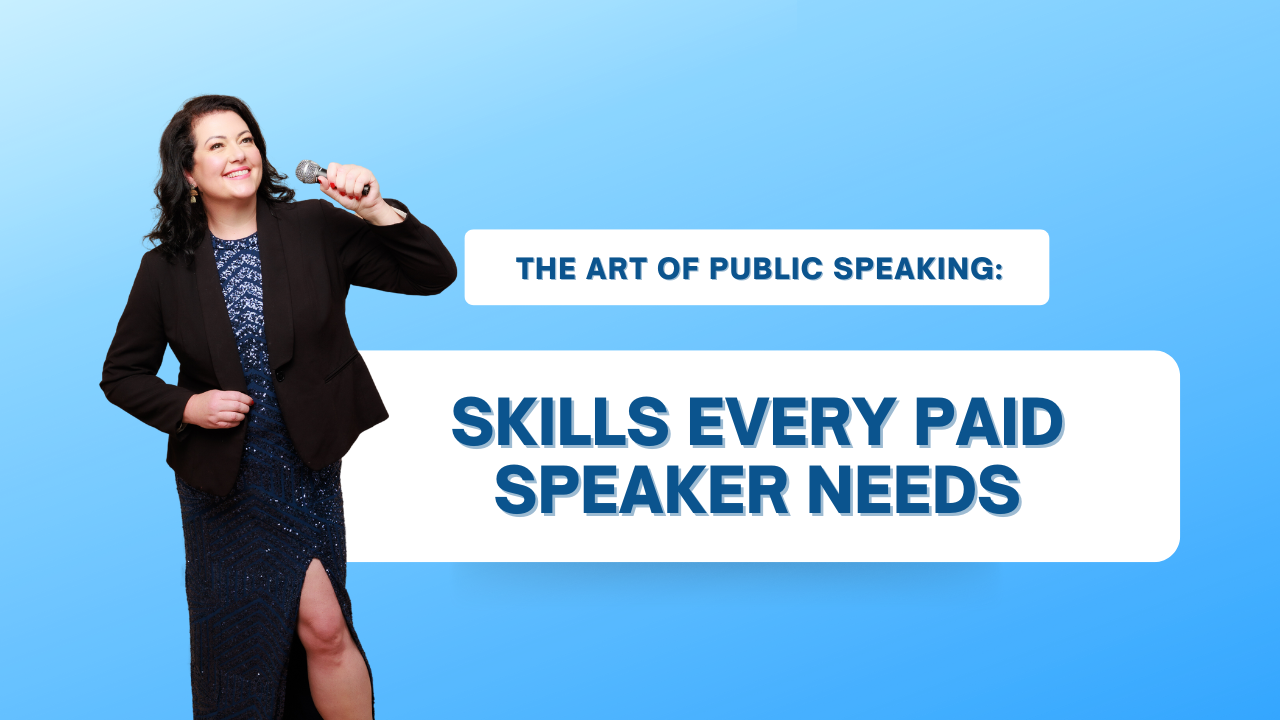The art of public speaking: Skills every paid speaker needs

Public speaking, often hailed as an art, is a potent tool in our modern world. It’s no wonder that many professionals strive to master this skill, especially if they aim to become a paid speaker. Standing in front of a group, large or small, and communicating effectively requires more than just a loud voice or a memorable topic. It’s about connecting, influencing, and leaving a lasting impact. If you’re aiming to transform your public speaking hobby into a paid profession, here are crucial skills to cultivate.
- Content Mastery
Before stepping onto any stage, a speaker must be deeply familiar with their subject. This isn’t about memorising lines but understanding the subject in-depth, anticipating questions, and feeling passionate about it. When you're knowledgeable, you exude confidence, and your audience trusts what you have to say. - Audience Analysis
A good speaker knows their material; a great speaker knows their audience. Tailoring your speech to the interests, demographics, and expectations of your listeners ensures your message resonates. It’s about meeting them where they are and guiding them to where you want them to be. - Engaging Storytelling
Stories are powerful tools for communication. They capture attention, enhance understanding, and create memorable moments. An effective public speaker knows how to weave in personal anecdotes or relatable tales that reinforce their key points. The audience is more likely to remember a compelling story than a list of facts. - Non-verbal Communication
Much of human communication is non-verbal. From your posture to your gestures, every movement communicates a message. An effective public speaker must master the art of using their body to reinforce their words. This includes making eye contact, using open gestures, and ensuring your facial expressions align with your message. - Vocal Variety
A monotone voice can make even the most exciting topic seem dull. Vocal variety – in pitch, tone, speed, and volume – adds texture to your speech. It keeps the audience engaged and can emphasise crucial points. Practising modulating your voice can add an extra layer of interest to your presentation. - Effective Use of Visual Aids
Whether it’s a simple slide presentation, a prop, or a video clip, visual aids can reinforce your message. However, the key lies in ensuring they complement and don’t overshadow your talk. A paid speaker should be adept at integrating visuals seamlessly into their presentation. - Adaptability
No two speeches will go the same way. Technical glitches, unexpected questions, or even a restless audience can throw you off track. The ability to adapt on the spot, without betraying anxiety or annoyance, is invaluable. This might mean tweaking your content on the go, adjusting your pacing, or improvising when things don’t go as planned. - Building Rapport
This skill is all about making a personal connection. It can start with something as simple as a smile, a light joke, or a shared experience. Building rapport puts your audience at ease and makes them more receptive to your message. An audience that feels connected to the speaker is more likely to engage and remember the presentation. - Listening Actively
While public speaking might seem like a one-way street, it’s far from it. Paying attention to the audience's non-verbal cues or questions can give you insights into their understanding and interest levels. By actively listening, you can adjust your delivery to better suit their needs. - Continuous Learning and Feedback
The world is evolving, and so are the techniques and nuances of public speaking. A paid speaker should have a commitment to lifelong learning. This includes seeking feedback, attending workshops, or even hiring a coach. Constructive criticism is the quickest route to refinement.
While innate talent can make some aspects of public speaking easier, the most critical skills can be cultivated with dedication and practice. Aspiring to become a paid speaker is a noble endeavour, demanding a blend of expertise, empathy, and engagement. But remember, at the heart of every great speech is a genuine desire to connect and share something of value. Master this art, and you'll find not just a profession but a platform to inspire and impact countless lives.


